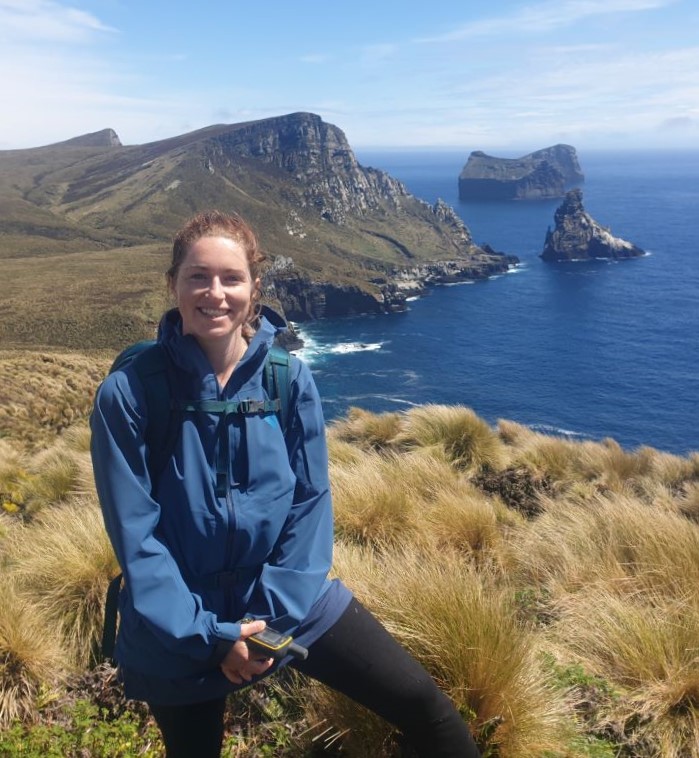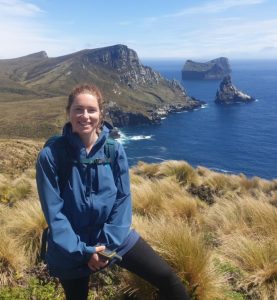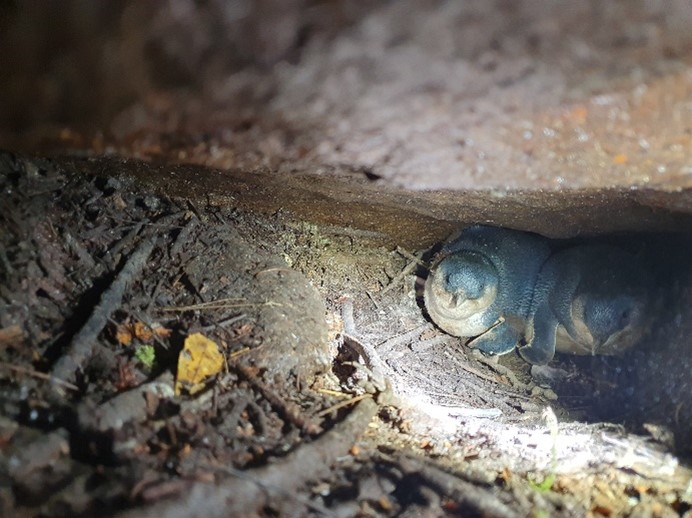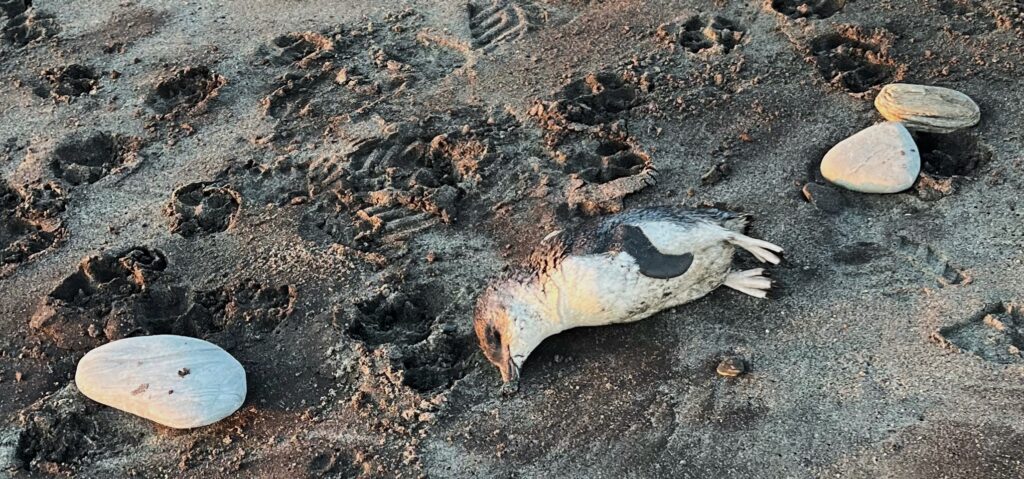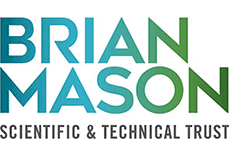
With blood in its mouth and dog tracks all around it, the Department of Conservation (DOC) assumes that this little blue penguin or kororā was killed by a dog last week at Serpentine beach.
This should be a season of good news as penguins are starting their breeding season.
Instead, DOC and the West Coast Penguin Trust are asking all dog owners to keep dogs under close control at the beach at all times and always out of the vegetated areas. Close control means that there is absolutely no doubt that they will return to you immediately that they are called, leaving anything of interest whether another dog, human, curious smell, food (perhaps toxic) or wildlife.
In fact, that request goes to all beach users.
West Coast Penguin Trust Manager, Inger Perkins, says everyone can help.
“It may be that dog owners are visiting the area and have no idea that there may be penguins present. It can’t hurt to say hello and just note that there may be penguins present so keeping dogs under close control and out of the dunes is important. Also, from dusk to dawn, dogs should be on a lead as penguins could be coming and going across the beach.
“Kororā are the smallest of all penguins, standing just 30cm tall. They are vulnerable to a variety of threats. Your darling dog might just want to play, with no malice at all, but unfortunately the necks of penguins cannot withstand the jaws or a playful shake of a dog of any size.”
With assistance from DOC, the West Coast Penguin Trust has been recording reports of dead penguins since 2006. The location and, where possible, the cause of death is added to a database. The results are clear: 56% of the penguin deaths were due to vehicles on our coastal roads while 19% were killed by dogs.
Penguin protection fences along the Coast Road north of Punakaiki and north of Hokitika, are keeping penguins safe on the sea side of roads and the proportion of penguins killed on the roads has reduced significantly since the fences were installed. However, there are other places where penguins will venture onto roads. If you’re travelling at night, it will be safer for you and give penguins more of a chance if you drive a little slower and allow a bigger gap when following another vehicle.
When it comes to dogs, the proportion of penguins killed by dogs has remained at around 19-20% of all reported penguin deaths. You will probably have seen signs at beach access points reminding us that penguins, as well as seals and other native wildlife, nest, rest and feed in the beach area. The shared advice from district councils, DOC and the Penguin Trust is to stay at least 20m, or four car lengths away, from any wildlife. Dog owners are encouraged to keep dogs on leads after dark and before dawn, and at all times in the dunes and coastal scrub where penguins could be nesting.
Ms Perkins, says:
“Sadly, encouragement is not always enough and if we have shared this message once, we have shared it a thousand times, and yet sadly here we are again.”
Senior Biodiversity Ranger at DOC in Greymouth, Darrell Haworth, explained:
“It is an offence if you’re the owner, or person in charge of a dog that attacks protected wildlife and that dog kills wildlife or injures them so badly they have to be destroyed to end suffering. Anyone convicted of such a charge can be sentenced to prison for up to 12 months, be fined up to $10,000, or both.
“But before looking at compliance options, why not think of the dog? A dog that is allowed to roam is not only a risk to wildlife but also to itself and road users if it wanders on to a road. Keeping your dog safe and secure at home, and under effective and close control when out walking or hunting, just makes sense.”
Ms Perkins added that penguins could be around at any time of year.
“We are approaching the breeding season for kororā as they sort out nests in anticipation of egg laying later this month. However, penguins could be using the beach you share with them at any time of year. You might see their tracks heading out to sea before the next tide washes footprints away.”
As the breeding season begins, DOC staff are likely to visit areas where penguins and other wildlife might be at risk from dogs, Darrell Haworth says.
“We’re keen to ensure the message is clear before we do so, to avoid having to potentially issue any infringement notices.
“Don’t take dogs where they are prohibited and ensure that you always have effective control of your dog – effective control means that your dog will immediately return to you when called.”
DOC has some advice to help dog owners be more responsible when exercising dogs at the beach:
- Walk on the wet sand: you’ll be more likely to avoid wildlife
- Feet on sand, lead in hand: always have your lead handy in case you need to keep your dog close)
- Keep your dog on a lead near wildlife and stay four car lengths (20m) away, and
- Help ’em out, give a shout (let other beach goers know when wildlife is present).
DOC has more information on its website.: www.doc.govt.nz/dogs-on-beaches

